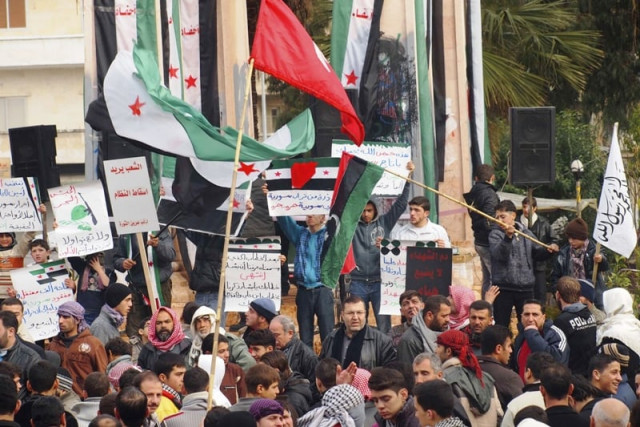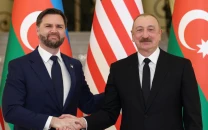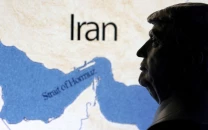Iran supplying weapons to Syria crackdown : US officials
United States believes Iran is supplying munitions to aid Syria's bloody protest crackdown.

Iran supplying weapons to Syria crackdown : US officials
Qasem Soleimani, head of the Iranian Revolutionary Guards Corps elite Quds force, was in the Syrian capital this month, one official said, in what Washington sees as the most concrete sign yet that Iranian aid to Syria includes military hardware.
"We are confident that he was received at the highest levels of the Syrian government, including by President Assad," the official said on condition of anonymity.
"We think this relates to Iranian support for the Syrian government's attempts to suppress its people."
The official said Washington has reason to believe that Iran is supplying security-related equipment "including munitions" to Syrian forces.
"The US government believes Iran has supplied Syria with munitions" for use in the military crackdown, he said.
The United States has long suspected that Iran has been aiding Syria's purge against protesters as Assad tries to cling to power and avoid the fate of other Arab dictators felled by the Arab Spring uprisings.
Another official said Soleimani's visit marks the strongest indication yet of direct cooperation between the allies amid a purge that the UN estimates has left more than 5,000 people dead since March.
The officials did not give further details of the information that has led them to conclude that Tehran has indeed provided security equipment and munitions to the Syrian armed forces.
The powerful Soleimani has been mentioned by some observers as a possible successor to Iran's President Mahmoud Ahmadinejad and has repeatedly been the target of US sanctions.
Washington last year accused him of links to an alleged plot by the Quds force to kill the Saudi ambassador to Washington by hiring assassins from a Mexican drug cartel for $1.5 million.
The latest revelations come with the United States locked in a tense standoff with Tehran over its nuclear program and as maritime tensions between the two states simmering in the Strait of Hormuz, a vital oil shipping route.
Washington has warned Iran it will not tolerate any attempt to close the Strait, as Tehran becomes increasingly infuriated by the growing impact of US and international sanctions designed to deter its nuclear program.
The Revolutionary Guards maritime division, which handles military operations in the strait and the Gulf, is expected to hold maneuvres in the area soon.
Signs of direct cooperation between Iran's Revolutionary Guards and Syria came a week after Mahmud Suleiman Haj Hamad, a former official in Assad's regime, accused Iran and Iraq of financially aiding the Syrian crackdown.
He made the allegations at a press conference in Cairo after announcing his defection from the regime, according to an Al-Jazeera report.
Iran has also been standing firm with Syria after the Arab League suspended Damascus over the repression wracking the country and imposed fierce pressure on the Assad regime to accept a peace plan.
Tehran has been concerned about the possible collapse of Syria, its principal regional ally, a scenario that would leave it even more isolated in its own region as nuclear sanctions bite.
It has accused its traditional foes Israel and the United States of stirring up trouble in Syria.
In a televised speech lasting nearly two hours on Tuesday, Assad vowed to crush "terrorism" with an iron fist and accused outsiders of trying to destabilize his country.
That prompted opposition movements to accuse him of pushing Syria towards civil war and world powers to accuse him of trying to shift the blame for the 10 months of bloodletting in the protests against his regime.
Secretary of State Hillary Clinton described the speech as "chilling" and the United States says Assad has long since lost political legitimacy after oppressing the hopes of Syrians for freedom and democracy.



















COMMENTS
Comments are moderated and generally will be posted if they are on-topic and not abusive.
For more information, please see our Comments FAQ